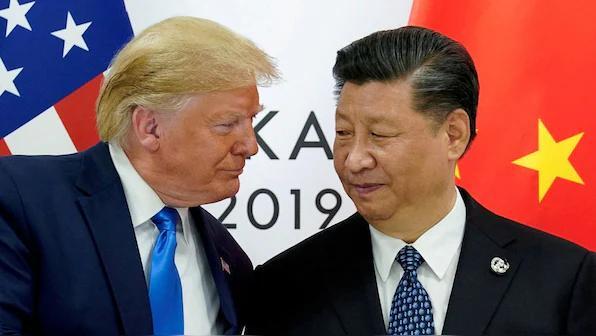
China Refuses to Join Denuclearisation Talks with US & Russia
In a recent development, China has refused to join trilateral denuclearisation talks with the United States and Russia, rejecting President Donald Trump’s call to include Beijing in future negotiations. The Chinese Foreign Ministry Spokesperson, Guo Jiakun, stated that the expectation was “neither reasonable nor realistic” as “China and US are not at the same level at all in terms of nuclear capabilities”.
This decision comes as a major blow to the efforts of the two world powers to negotiate a nuclear disarmament agreement. The US and Russia have been engaged in a series of talks aimed at reducing their nuclear arsenals, and China’s refusal to join the talks has raised concerns about the prospects of a successful agreement.
China’s decision is not surprising, given its long-standing stance on the issue. Beijing has consistently maintained that it will not participate in any talks that are not based on the principles of equality and reciprocity. China has also emphasized that it is not a signatory to the Nuclear Non-Proliferation Treaty (NPT) and therefore does not have the same level of nuclear capabilities as the US and Russia.
The US has been pushing for China to join the talks, arguing that Beijing’s participation would help to create a more level playing field and increase the chances of a successful agreement. However, China has resisted these efforts, citing its concerns about the imbalance in nuclear capabilities and the lack of a level playing field.
The decision by China to refuse to join the talks has raised concerns about the prospects of a successful agreement. The US and Russia have been engaged in a series of talks aimed at reducing their nuclear arsenals, but the lack of Chinese participation has raised concerns about the effectiveness of these efforts.
The US has been pushing for China to join the talks, arguing that Beijing’s participation would help to create a more level playing field and increase the chances of a successful agreement. However, China has resisted these efforts, citing its concerns about the imbalance in nuclear capabilities and the lack of a level playing field.
The decision by China to refuse to join the talks has raised concerns about the prospects of a successful agreement. The US and Russia have been engaged in a series of talks aimed at reducing their nuclear arsenals, but the lack of Chinese participation has raised concerns about the effectiveness of these efforts.
The US has been pushing for China to join the talks, arguing that Beijing’s participation would help to create a more level playing field and increase the chances of a successful agreement. However, China has resisted these efforts, citing its concerns about the imbalance in nuclear capabilities and the lack of a level playing field.
The decision by China to refuse to join the talks has raised concerns about the prospects of a successful agreement. The US and Russia have been engaged in a series of talks aimed at reducing their nuclear arsenals, but the lack of Chinese participation has raised concerns about the effectiveness of these efforts.
The US has been pushing for China to join the talks, arguing that Beijing’s participation would help to create a more level playing field and increase the chances of a successful agreement. However, China has resisted these efforts, citing its concerns about the imbalance in nuclear capabilities and the lack of a level playing field.
The decision by China to refuse to join the talks has raised concerns about the prospects of a successful agreement. The US and Russia have been engaged in a series of talks aimed at reducing their nuclear arsenals, but the lack of Chinese participation has raised concerns about the effectiveness of these efforts.
It is worth noting that China’s decision to refuse to join the talks is not without its risks. The country’s nuclear capabilities are still developing, and the lack of participation in the talks could make it more difficult for Beijing to achieve its goals. Additionally, the decision could also create tensions between China and the US, as well as between China and Russia.
In conclusion, China’s decision to refuse to join denuclearisation talks with the US and Russia is a significant development in the ongoing efforts to reduce nuclear arsenals. While the decision may create tensions between the parties, it also reflects China’s concerns about the imbalance in nuclear capabilities and the lack of a level playing field. Ultimately, the success of these efforts will depend on the ability of the parties to find a way to address these concerns and work together towards a common goal.



